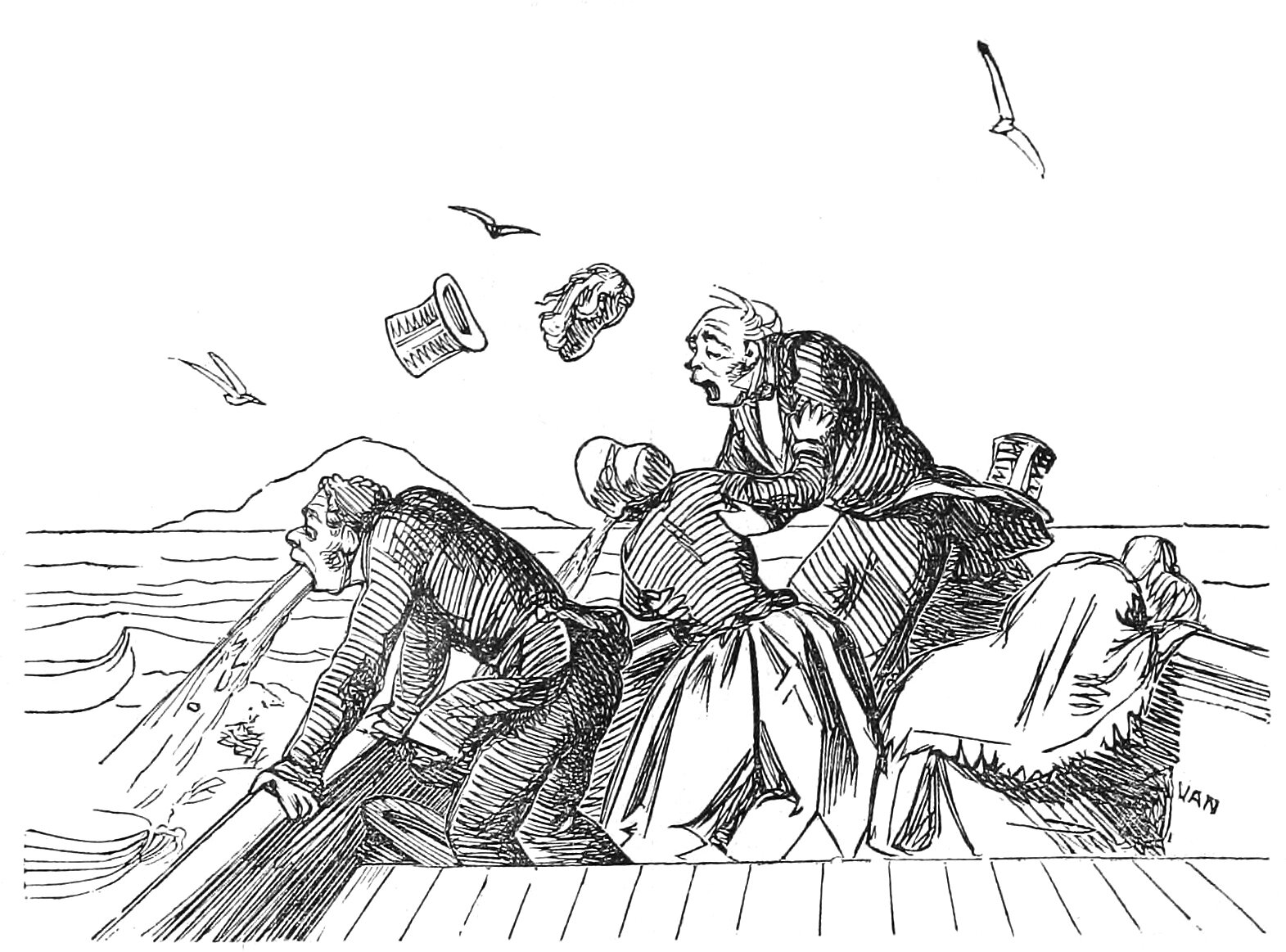The Sickening Seas

Seasickness is probably the bane of many an otherwise invulnerable adventurer.
Dr. Eric Lis is a physician, gamer, and author of the Skirmisher Publishing LLC sourcebook, Insults & Injuries.
Seasickness is probably the bane of many an otherwise invulnerable adventurer.
Seasickness is a common problem. I wanted to start this post with the percentage of people who suffer from it, but I can’t, because the best data actually says that seasickness afflicts pretty much 100% of people, assuming the seas get rough enough, and that’s not a very useful number. We know that infants generally don’t experience seasickness, but that it appears some time after the age of 4 and often gets better as someone enters their teens. For most people, seasickness will go away after about 72 hours continuously on a boat, but some sufferers will then develop it again when they step back onto land. Travel books often claim that a cabin near the center of a boat seem to cause less motion sickness, and these cabins are often more expensive as a result, but the studies actually show that cabin location makes little to no difference. Lying down probably does help, for reasons that make some sense when you read about how the human vestibular system works. In any case, given that descriptions of seasickness go back to the earliest human writings (the word “nausea” is, in fact, derived from the Greek word for “ship” or “sailor”), it’s safe to assume that player characters suffer from it too. Game mechanics for causing and adjudicating seasickness have appeared in several rulebooks over the years and I won’t presume to propose better ones here, but it does behoove us to wonder what, if any, remedies are available to characters living in a medieval setting.
To the Greeks and Romans, seasickness was an imbalance in the humours in the gut, usually a problem with the bile. Writings from this era recommend several plants rich in alkaloids, which is interesting because scopolamine, one of the most effective modern remedies is an alkaloid. Unfortunately, these texts tended not to recommend anything containing scopolamine, but more commonly plants such as hellebore, a highly toxic plant that causes nausea, vertigo, swelling of the throat, and cardiac arrest. Hellebore was likely a treatment selected based on the logic that drugs which cause a symptom in large doses alleviate the same symptom in small doses… and before you laugh at that too hard, remember that the same spurious logic is still the basis of homeopathy. If hellebore was effective at all, it was probably by making someone feel sufficiently ill that they didn’t notice their seasickness anymore. In the Byzantine era, influenced as it was by the Greeks and Romans, seasickness was recognized more as a problem in the head and inner ear than in the stomach and intestines, but treatments remained broadly the same.
In China, where seafaring was a smaller part of life than it was in the Greek isles, physicians early on distinguished ship-sickness from cart-sickness and litter-sickness. All three were attributed to imbalances in the chi or to external forces (such as wind) entering the body, and noted to be more common in children. Treatments, however, made the Greeks look sensible, as included such therapies as drinking urine, or drinking water droplets from a bamboo stick, or hiding dirt from the kitchen fireplace in one’s hair.
As it happens, one ancient therapy for seasickness remains very popular today: ginger. Ginger is cited as a nausea remedy in texts from all over the Ancient world. Unlike most ancient remedies, ginger’s utility as a medicine has been partially supported by modern research. Studies that have tested its use for dizziness and nausea in general have suggested it is somewhat effective for nausea related to pregnancy, but probably not very effective for other forms of nausea, including seasickness. On the other hand, it remains a remedy commonly suggested by doctors because, after all, it’s pretty much harmless; to my knowledge, and according to a quick search of the medical literature, there has never been a case of someone overdosing on or being poisoned by eating ginger.
As for the drugs with which we treat seasickness today, a storyteller may or may not rule that they’re available to medieval sailors. Drugs like scopolamine (and other drugs effective for nausea, like diphenhydramine) were by and large first extracted from plant sources in the nineteenth and twentieth centuries. Prior to this, people would consume plants rich in similar alkaloids, such as henbane, but without advanced purification these plants were generally considered to be deadly poisons (fun fact: the word “hen” in henbane is thought to refer, not to the animal, but to come from older Saxon words for “death”). Given the feats which fantasy alchemists are capable of, it’s entirely possible that some enterprising scientist has isolated the beneficial alkaloids, but it’s much more likely that such plants are favoured by poisoners and assassins rather than ship’s doctors.
So, all of that being said, when your landlubber characters board a ship and fall ill, they probably don’t have easy access to any effective drugs. Being the wealthy and powerful folks that adventurers tend to be, they probably instead use simple magic to cure themselves; you would have to imagine that something like “cure seasickness” might be a zero-level spell commonly known in nautical societies. NPCs who don’t have access to that kind of magic or money are, as is so often the case in games, just stuck with being sick.




